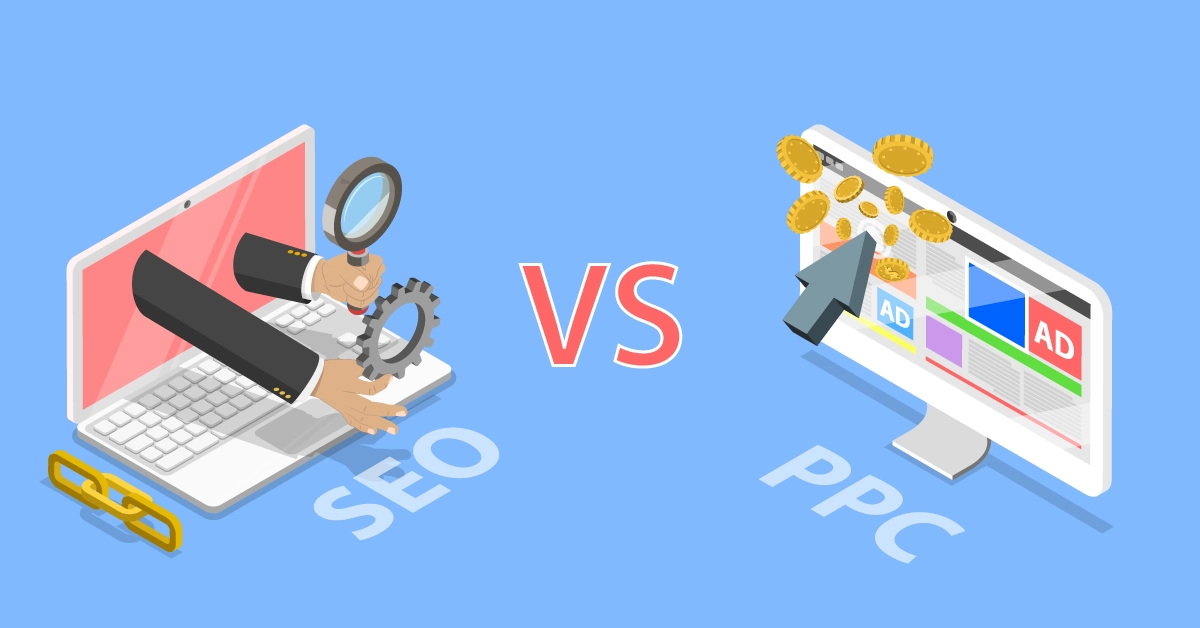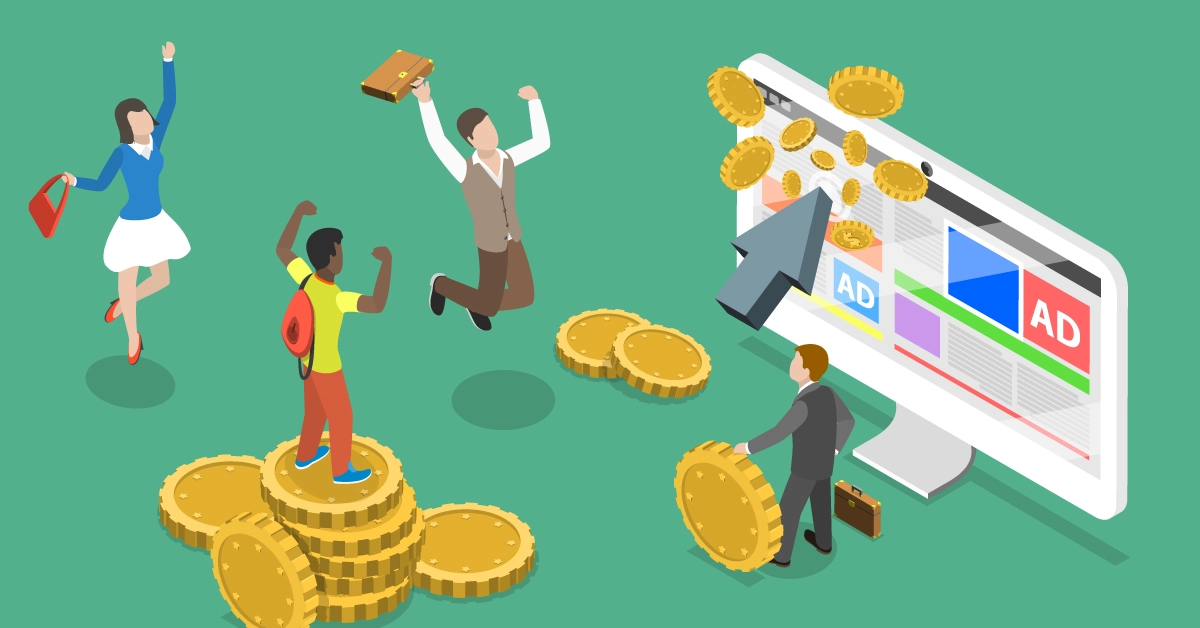
SEO (Search Engine Optimisation) and PPC (Pay-Per-Click advertising) are both powerful tools for driving traffic to your website, but they work in different ways. SEO focuses on improving organic search visibility over time, while PPC provides immediate results by placing ads at the top of search engines. The best choice depends on your goals, budget, and timeline.
Quick Comparison: PPC vs SEO
| Aspect |
PPC |
SEO |
| Cost |
Paid per click, costs depend on competition |
Typically free clicks but requires time and effort |
| Time to Results |
Immediate visibility once the campaign is live |
Long-term (3-6 months for significant improvement) |
| Goal |
Drive immediate traffic and conversions |
Build organic traffic and authority |
| Best For |
Short-term promotions and targeted campaigns |
Sustained growth and branding |
What is PPC?
PPC (Pay-Per-Click) is a form of online advertising where you pay for each click on your ad. These ads appear at the top of search engine results or on other platforms, such as social media or websites.
Key benefits of PPC
- Instant visibility: Your ads can appear on page one within minutes of launching a campaign.
- Targeted audience: Use advanced targeting options, such as location, interests, and demographics.
- Measurable results: Track ROI and adjust campaigns in real time.
The Case for PPC: Instant Results and Targeted Traffic
Pay-Per-Click advertising is a model where you pay each time a user clicks on your ad. PPC platforms, such as Google Ads, Bing Ads, or social media networks like LinkedIn and Facebook, allow advertisers to bid for ad placements in a search engine's sponsored results or across social media feeds.

When to Use PPC:
- Immediate Results: If you need quick visibility - such as during a product launch, a promotional event, or a seasonal campaign - PPC is the way to go. It allows businesses to appear at the top of search results instantly, driving immediate traffic to your website. SEO, by contrast, can take months to deliver significant results.
- Precise Targeting: PPC offers highly granular targeting options. You can target by demographics, location, time of day, and even behaviour, ensuring that your ads reach the most relevant audience. PPC is especially effective if you’re looking to attract a specific customer segment or promote a time-sensitive offer.
- Budget Control: With PPC, you have full control over your budget. You can set daily spending caps, adjust your bids, and even pause campaigns if necessary. This flexibility makes PPC ideal for businesses with tight budgets or those needing to monitor spending carefully.
- Remarketing: One of PPC’s most powerful tools is remarketing, which allows you to show ads to users who have previously visited your website. This keeps your brand top-of-mind, increasing the chances of conversion.
However, PPC comes with its own challenges. It can be expensive, especially in competitive industries where cost-per-click (CPC) bids are high. Additionally, once you stop paying for PPC, the traffic stops.
What is SEO?
SEO (Search Engine Optimisation) is the practice of improving your website to rank higher in organic search engine results. It focuses on making your website more visible to users searching for relevant topics without relying on paid advertising.
Key elements of SEO
- On-page optimisation: Creating keyword-rich, user-friendly content.
- Off-page optimisation: Building backlinks and online authority.
- Technical optimisation: Improving website speed, structure, and security.
The Case for SEO: Sustainable Growth and Long-Term Value
SEO, or Search Engine Optimisation, focuses on improving organic rankings in search engine results by optimising website content, structure, and overall authority. SEO aims to attract "free" traffic through strategies like keyword optimisation, content marketing, and backlink building.

When to Use SEO:
- Long-Term Growth: SEO is a long-term strategy that can yield sustainable results. While it may take time to see rankings improve, once you secure a strong position in organic search results, your site can receive consistent traffic without ongoing ad spend. For businesses looking for lasting impact, SEO is the most cost-effective approach over time.
- Authority and Credibility: SEO helps establish your business as an authority in your industry. Organic search results are often seen as more credible by users, as they are earned rather than paid for. This trust factor can improve your brand’s reputation and lead to higher conversion rates.
- Cost-Effectiveness: While SEO requires time and resources to execute (e.g., content creation, technical optimisations), the traffic it generates doesn’t come with the same costs as PPC. Once your content ranks, it can continue to drive traffic for months or even years without additional investment.
- Local and Niche Opportunities: For businesses with a local presence or serving niche markets, SEO can deliver impressive results. Local SEO helps businesses appear in "near me" searches, while long-tail keyword optimisation allows companies to capture highly relevant traffic from specific queries.
Despite its advantages, SEO also has limitations. It requires a longer time horizon to see meaningful results, and search engine algorithm updates can sometimes cause rankings to fluctuate unexpectedly.
Which to Use and When?
The key to maximising business impact is knowing when to use PPC, SEO, or a combination of both. For immediate traffic, short-term promotions, or highly targeted campaigns, PPC is often the best option. On the other hand, if you're aiming for long-term growth, building credibility, or operating on a limited budget, investing in SEO will likely yield better returns over time.
In many cases, the ideal solution is a balanced approach. Use PPC to generate quick results while investing in SEO to build a sustainable foundation for organic growth. Together, these strategies can complement each other, driving both immediate visibility and lasting success.
Contact our marketing experts today to find out what strategy will work best for your business.